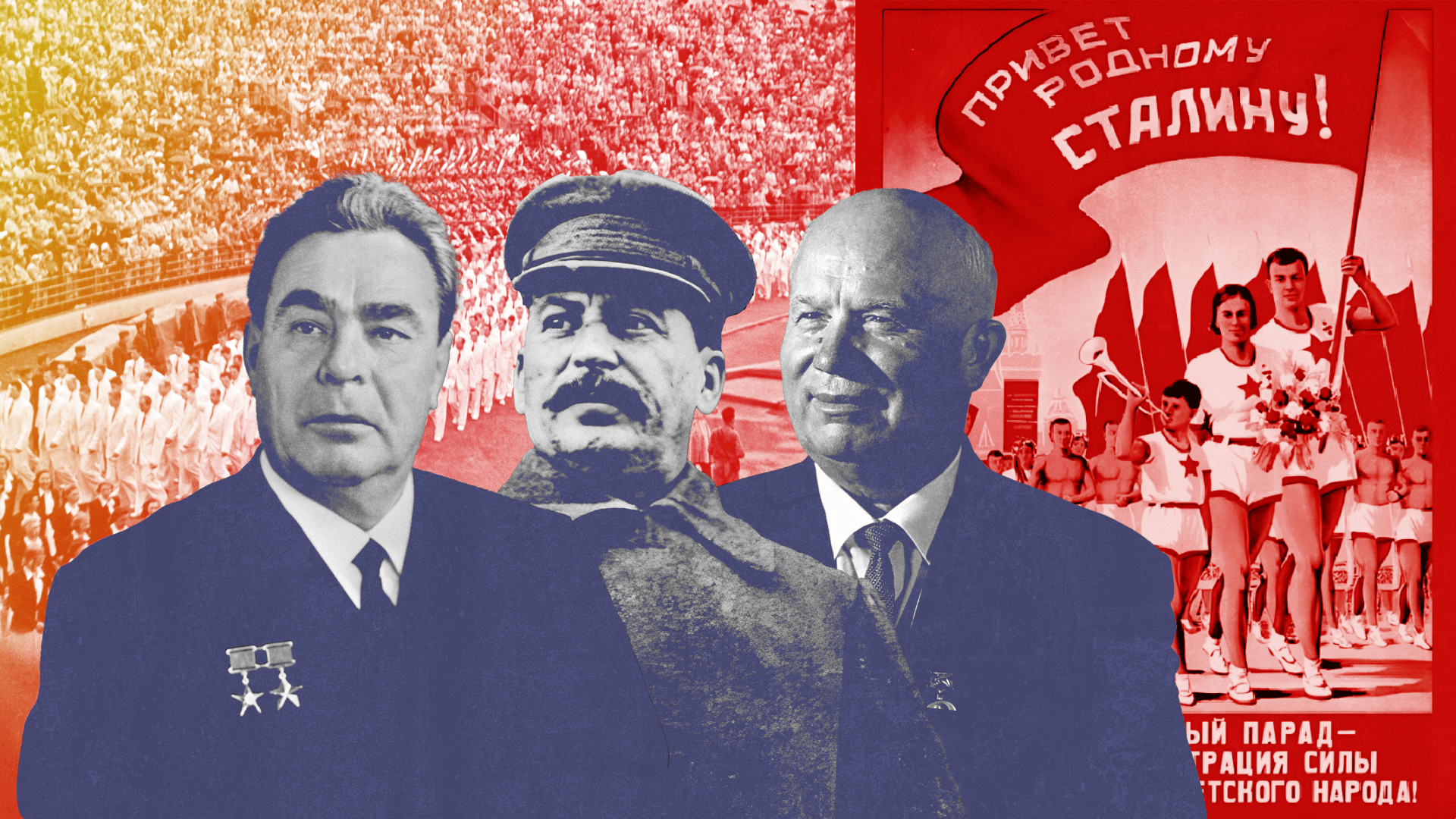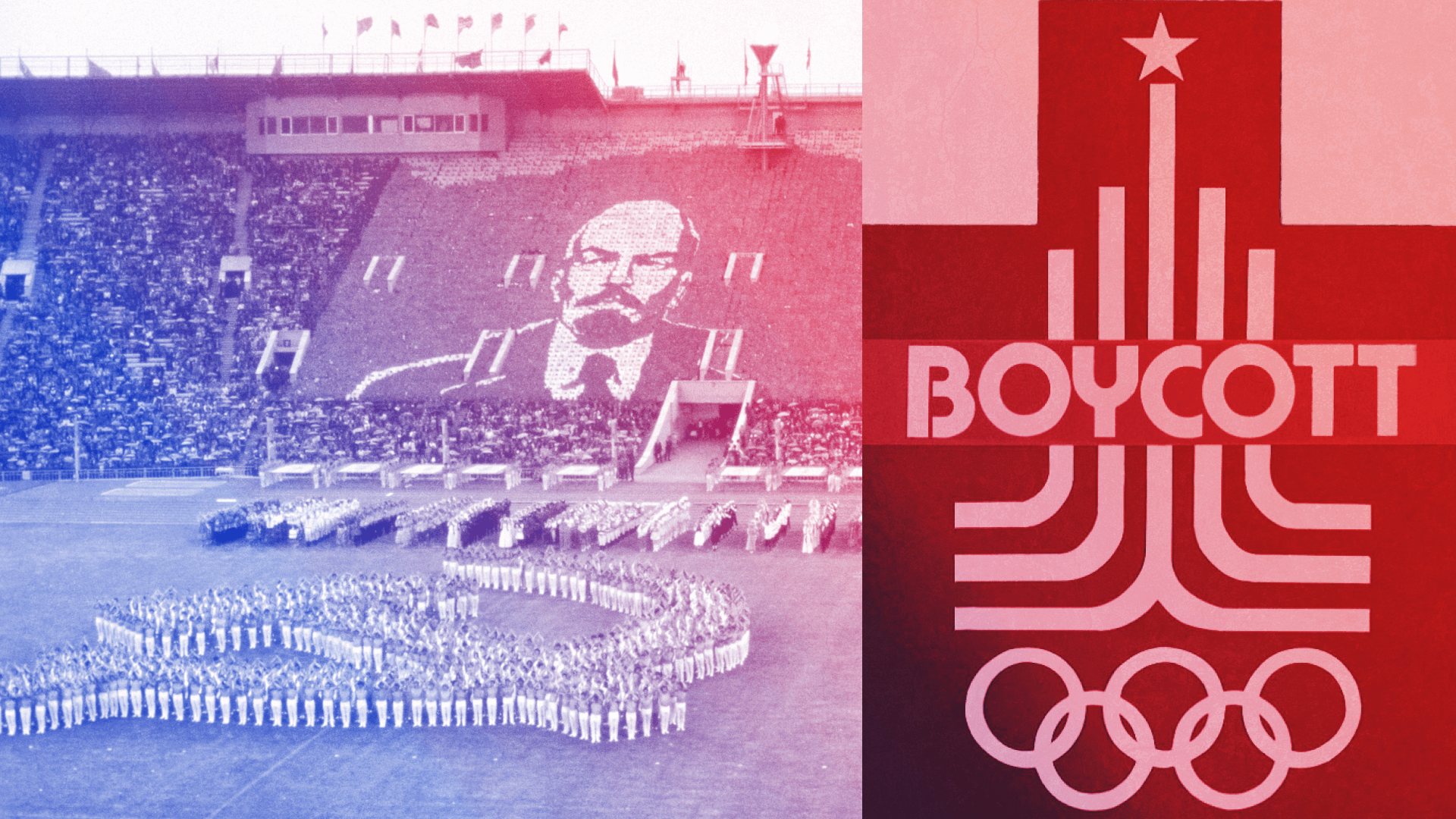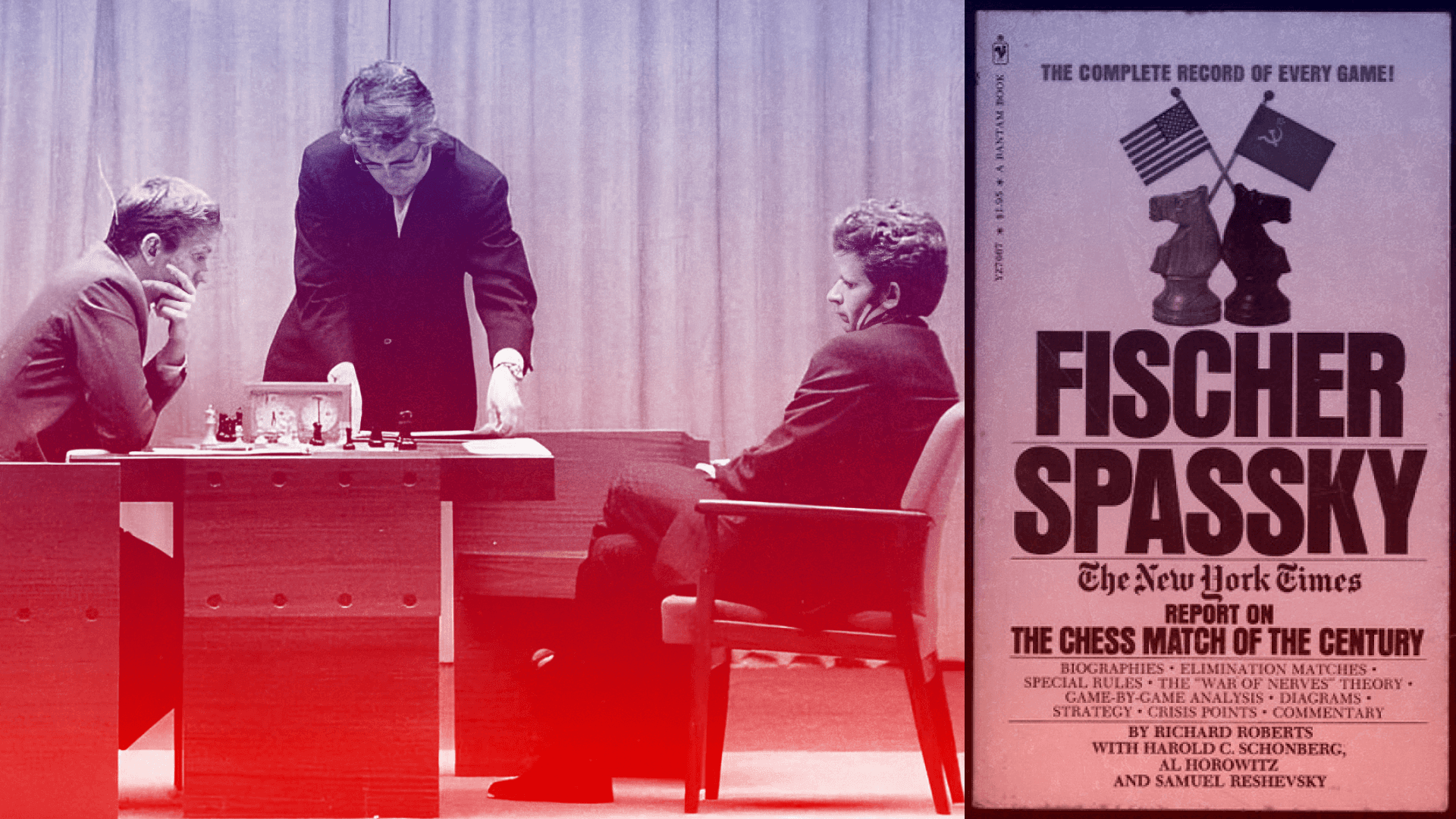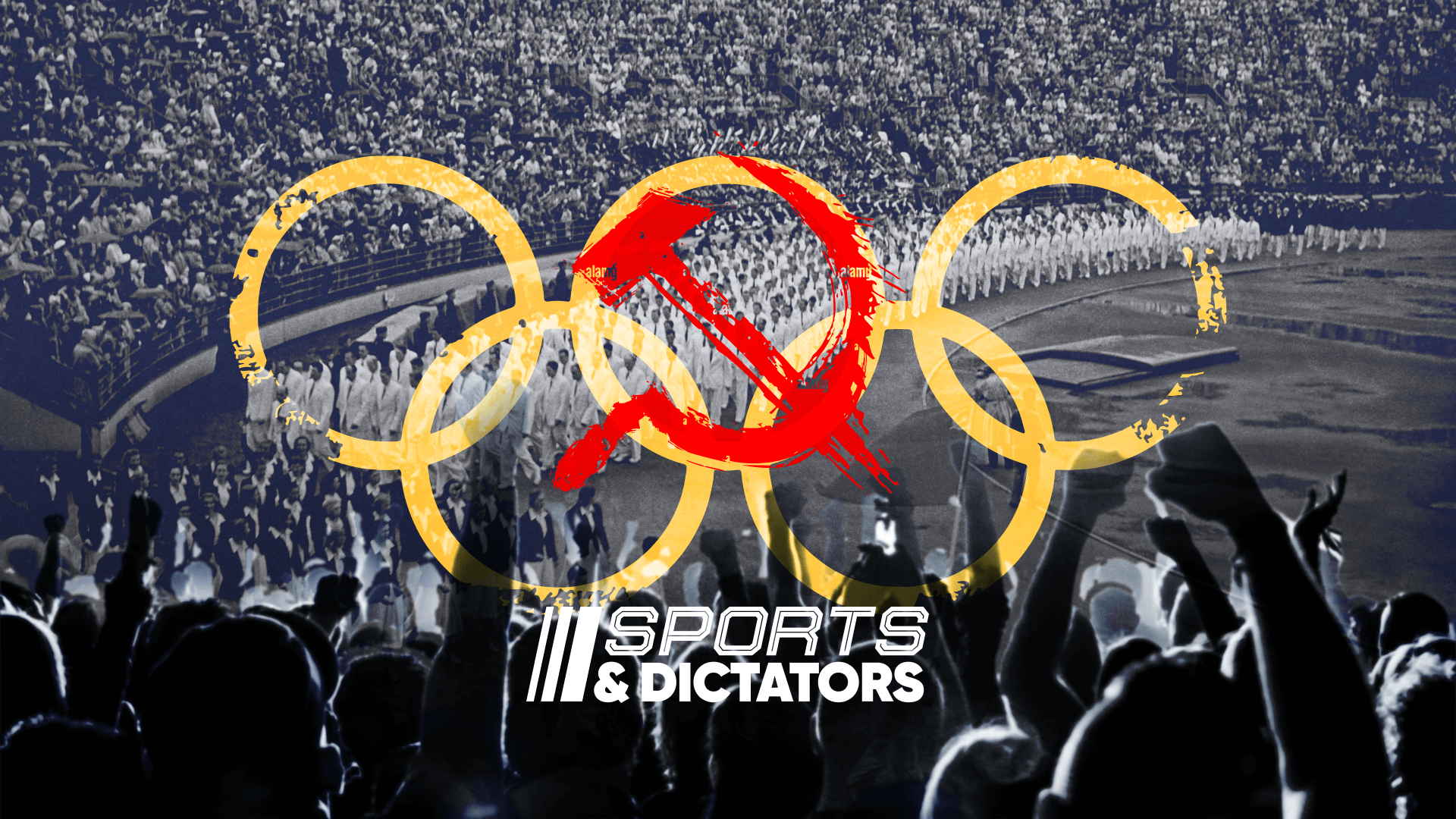By Karim Zidan, sports and dictators fellow, and Mohamed Keita, senior policy officer
Long before the inception of the Olympic Games in Ancient Greece, sports have been used to distract the masses, test foreign policies, thaw diplomatic tensions, and broadcast political and social messaging. In the modern era, authoritarian regimes have tapped into the popularity of sports within popular culture to manipulate domestic and global perceptions as a form of sophisticated soft power strategy.
This four-part series will delve into the history of dictators’ weaponization of sports for political indoctrination, national consensus, the distraction of the masses, global projection of soft power and prestige, and international diplomacy, analyzing its ancient roots, its popularity among dictators in the 20th century, and its modern evolution.
This piece looks at the evolution of Russia’s sports propaganda from Peter the Great to the height of the Soviet Union.
When Tsar Peter 1 — better known as Peter the Great — visited England in 1689, he arranged what has been called the “first international boxing match” in the garden of the nobleman’s home. The bout involved the tsar’s grenadier guard, who defeated a Scotsman regarded as the unofficial champion of England and Scotland. While neither of the competitors’ names have been recorded in the annals of history, the fight proved to be a watershed moment for Russian sports.
Encouraged by the contest, Tsar Peter returned to Russia and introduced physical education and sporting activities as part of his soldiers’ regular training. Swimming, fencing and rowing were introduced as part of the curriculum at the prestigious School for Mathematical Sciences and Navigation in Moscow. By the 18th century, fencing was among the skills taught to Russia’s nobility, which would go on to enjoy international repute.
While Russian sports would continue to develop throughout the 19th and early 20th centuries — Russia was one of the dozen founding members of the modern Olympic movement in 1894 — it wasn’t until the formation of the Soviet Union and its emergence in international competition in the 1950s that the country began to dominate the global space. International sports became an arena of national pride and propaganda, allowing the dictatorial regime a stage to showcase its potent communism ideology and mirroring the polarization already existent in the political space.
The Olympic Games

Following the 1917 Russian Revolution and the subsequent civil war that ensued until 1922, the Soviet Union would begin to flirt with competitive sports as a means to encourage fitness, health, and productivity, as well as a means to encourage military training. Yet it wasn’t until the end of World War II that the Soviet regime decided sports were a crucial means of soft power and diplomacy in the forthcoming Cold War.
In May 1951, the Soviet Union was accepted as a member of the International Olympic Committee. By December, the country accepted the invitation to the competition, and thus the 1952 Summer Olympics in Helsinki became the first Olympic Games in which Soviet athletes would compete. The Soviet Union went on to win a total of 71 medals at the 1952 Olympic Games, including 22 gold, finishing second behind the United States.
Discus thrower Nina Romashkova, who set an Olympic record during the event and became the first Soviet Olympic champion, later pleaded guilty to shoplifting five hats from a department store in the United Kingdom, sparking a diplomatic crisis between the UK and the Soviets. Nevertheless, she was awarded the Order of the Red Banner of Labour, which honors citizens who achieved great deeds and services to the Soviet state the following year.
Over the course of the next 36 years, the Soviet Union would continue to be a dominant force in Olympic competition. At six of its nine Summer Games appearances, the USSR ranked first in the total number of gold medals won, making it the biggest contender to US dominance at the Games and mirroring the political dynamics at play between the two superpowers during the height of the Cold War.
The USSR viewed international sports as a means to showcase communism and Soviet propaganda and create a facade of strength by symbolically defeating ideological foes such as the US. This led to unprecedented state-sponsored investments in sports to fulfill the USSR’s lofty objectives. As A. Nikolai Romanov, the postwar chairman of the USSR Committee on Physical Culture and Sport, recalled in his memoirs: “Once we decided to take part in foreign competitions, we were forced to guarantee victory; otherwise, the ‘free’ bourgeois press would fling mud at the entire nation as well as at our athletes. In order to gain permission to go to international competitions, I had to send a special note to Stalin guaranteeing victory.”
While the Olympics became a heated battleground for Cold War era superpowers and their contrasting ideologies, the athletic competitions were also viewed, perhaps naively, as a method of diplomacy, especially during one of the tensest periods in modern history.
During the 1972 Summer Games, which took place in Munich, West Germany, the USSR defeated the US in the Olympic men’s basketball final, marking the latter’s first ever loss in the event. This was viewed as an exceptional feat by Soviet officials, as the US was a global powerhouse in basketball. But the game has come to be viewed as one of the most controversial moments in Olympic history, with issues of corruption and match-fixing being raised as a result of the final three seconds of the game being replayed several times until the USSR finally came out on top.
The US would have to wait another eight years to exact its revenge. During the 1980 Winter Olympics in Lake Placid, NY, the US defeated the four-time defending champions USSR 4-3 in the medal round of the men’s hockey tournament — a game that has come to be known as the “Miracle on Ice.”
While the game, as well as the US’s subsequent victory against Finland in the final, would be remembered as a David & Goliath achievement for a group of mostly amateur, working-class Americans, it was also remembered for the wave of nationalistic fervor that emerged from it.
After years of political turmoil, a worsening economy, and the erosion of US prestige worldwide in the fallout of the Watergate scandal and Vietnam that, in President Jimmy Carter’s words, had resulted in a “crisis of confidence,” the Miracle on Ice had a profound effect on American society. This symbolic victory over their longtime foe in a game that the Soviets revered energized the nation and gave Carter a platform to score political points by espousing American values.
Olympic Boycotts

On March 21, 1980 — less than a month following the Miracle on Ice — Carter announced the US would boycott the 1980 Summer Games in Moscow to protest against the Soviet invasion of Afghanistan. This marked the first of numerous times that the two superpowers would use boycotts as part of their political arsenal.
The decision was not hastily taken. Western governments first considered the idea of boycotting the Summer Games in Moscow at a December 1979 meeting of NATO representatives who had gathered to discuss the Soviet military’s invasion of Afghanistan that year. While few Western allies were interested in the boycott at the time, the idea gradually gained momentum, especially after Russian dissident Andrei Sakharov called for a boycott in early January 1980. The Carter administration set a deadline a month later for the USSR to pull out of Afghanistan or face a multitude of consequences, not least of which was an international boycott of the Olympics.
“Neither I nor the American people would support the sending of an American team to Moscow with Soviet invasion troops in Afghanistan,” Carter said on Meet the Press.
Despite Carter’s claim, both the domestic and international response to the boycott varied greatly. The closest US allies that ultimately joined the boycott were Canada, West Germany, and Israel. Great Britain and Australia also supported the boycott, although both sent athletes to the Games.
In an attempt to bolster support for the boycott in Africa, Carter called upon boxing legend Mohammad Ali to take part in a goodwill tour through the continent to persuade African governments, including those in Tanzania, Nigeria, and Senegal, to join. But the trip fell apart when Ali himself was persuaded to withdraw his support for the boycott during his meetings.
Within the US, public support for the boycott was mixed. The American political elite were united in their support of the boycott, while many Americans sympathized with the athletes who were forced to give up on their dreams of participating in the Olympics.
Furthermore, despite its size, the boycott had no impact on the war, as the Soviet Union remained in Afghanistan until 1989. Since then, the US has not attempted to boycott the Games. Carter went on to lose in the 1980 presidential election in a landslide to Ronald Reagan. Meanwhile, the Soviet Union slowly began planning its retaliation for Carter’s boycott.
On May 8, 1984, the USSR announced its intentions to boycott the 1984 Summer Olympics in Los Angeles, citing “security concerns” and “anti-Soviet hysteria being whipped up in the United States.” Thirteen other Eastern Bloc satellite states and allies joined the boycott,
Despite Soviet officials claiming the boycott was due to security concerns and other similar issues, the boycott was viewed as a retaliatory measure following the US-led boycott in 1980. Nevertheless, 140 nations were still part of the games — a record at the time — while the USSR and its allies hosted the Friendship Games, an alternative to the Olympics that has since been revived by Russian President Vladimir Putin.
In 2016, documents obtained by The New York Times from a former chief medical doctor for Soviet track and field revealed a state-sponsored “doping plan” that was to be implemented at the 1984 Games before the USSR announced its boycott.
“The Match of the Century”

While the USSR achieved success in a wide range of sports, from wrestling and boxing to ice hockey and football, chess was where the Soviets exerted the most dominance on the international stage.
Under Vladimir Lenin, the leader of the Bolshevik Revolution of 1917 and first head of the Soviet state, chess was widely integrated into Soviet society. The USSR mandated the study of chess in schools and established state-sponsored training programs for promising upstarts. The best students to emerge from these schools became full-time professionals sponsored by the state.
The game was also promoted as a symbol of Soviet supremacy and a means to exert its superiority on the world stage. The Soviet chess strategy produced exceptional results. From 1948, Soviet and Russian grand masters, including Mikhail Botvinnik, Vasily Smyslov, Boris Spassky, Anatoly Karpov, Garry Kasparov, and Vladimir Kramnik, would hold the title of world champion almost uninterrupted until 2007. The only exception came in the form of an American challenger who would go on to capture the hearts and minds of the international community during the height of the Cold War.
Bobby Fischer was a chess prodigy unlike anything the US had seen before. He won his first of a record eight US Championships at the age of 14 and followed up by becoming the youngest ever Grandmaster at the age of 15, breaking the record previously held by the man he would go on to challenge in the world championship years later: Boris Spassky.
After a decade of success and setbacks, Fischer went on to secure qualification for the 1972 World Championships following dominant performances against the likes of former USSR champions Mark Taimanov and Tigran Petrosian, setting up a final showdown with reigning USSR champ Spassky.
The match, which took place during the Cold War, carried the weight of political expectations for both competitors.
But the match almost did not happen, with the eccentric Fischer threatening to walk out over issues regarding the match conditions, location and prize money. A phone call from Henry Kissinger, who served as US national security adviser at the time, is said to have changed the American’s mind.
Fischer went on to defeat Spassky to become the first American chess world champion in nearly a century. The ideological battleground had been won by the US, as Western media presented Fischer as a lone American prodigy defeating the Soviet machine. The victory put an end to 24 years of Soviet domination of the World Championship and made Fischer an overnight celebrity back home.
Despite his exceptional performance, Fischer refused to defend his title at the following world championships, leading to Soviet grandmaster and top contender Anatoly Karpov being declared World Champion by forfeit. The USSR would remain the dominant force in the competition until well after the fall of the union in 1990.
Karim Zidan is a sports and dictators fellow with the Human Rights Foundation (HRF). Mohamed Keita is a senior policy officer with HRF.
